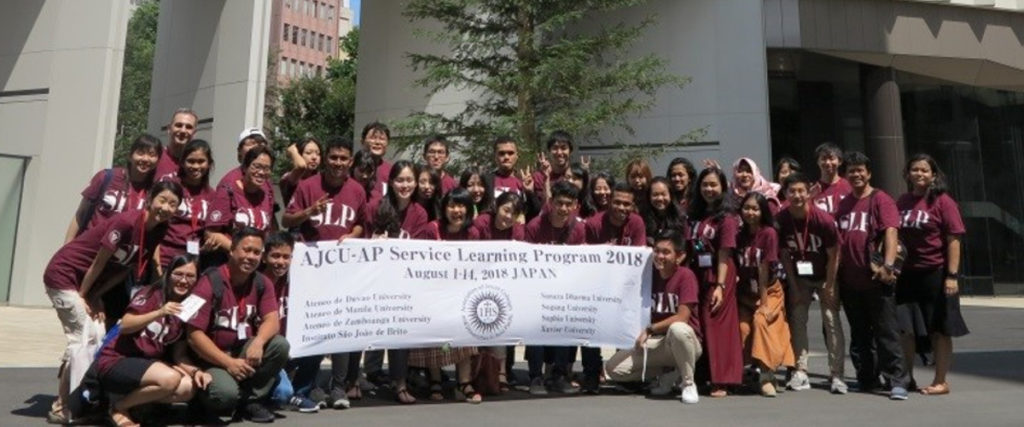The Beijing Center for Chinese Studies (TBC) hosted the first China Forum to be held in Mainland China. A collaboration between Georgetown University and La Civiltà Cattolica, the China Forum convenes Chinese academics and public figures with international partners to discuss common challenges at the intersection of culture, ethics and global society. The forum on October 17 was premised on the view that today’s political and ideological divides make intercultural dialogue critically important to advance the global common good.
Dr Thomas Banchoff, Vice President for Global Engagement at Georgetown University, described the challenges faced by the Jesuits in cultural dialogue from the time the Society was founded in 1540, to its re-establishment in 1814 and continuing until today. As forum moderator, Banchoff asked the panelists for their take on Jesuit dialogue, what the successes and failures are and the implications of the Jesuit culture in the contemporary era.
Fr Benoit Vermander SJ, Professor and Doctoral Advisor at Fudan University, defined success and failure – two words not found in the gospel – as “taking a position”, where success is a process that can be achieved when one accepts what is happening. He provided an insightful selection of encounters that speak to the Jesuit process, in particular the Jesuit missions from 1842 to 1949, where it was not East against West, but two contributing nationalities present during each mission (Italians and/or French with Chinese). The Jesuits in China were challenged by new ways, such as biblical chronologies versus Chinese chronologies or “what to call God in Chinese”. This exchange of knowledge has paved the way for the “global endeavours in which all dialogues are crisscrossing”. Fr Vermander pointed out that Jesuits should not focus on a single dialogue but remain at the intersection of several dialogues – acting as facilitators for other interpreters.
To a certain extent altruism is necessary to initiate cultural dialogue, but Dr Simon Koo, TBC Executive Director, said it, alone, is not enough – both sides must engage equally. Koo outlined three constructs from the Theory of Planned Behavior – behavioural beliefs, subjective norm and perceived behavioural control – that speak to the motives and thought-process of adapting to a new culture. For example, the Jesuits used different mechanisms to bring science, mathematics, new music, among other things to China to provide incentives for dialogue. His parting message that knowledge and education used to be a luxury but is now widely accessible because of technology left the audience to question whether the incentives for continuing dialogue are minimised in the modern age.
Associate Professor Fangfang Ji from the Chinese Academy of Social Sciences spoke particularly on how Jesuits served as intermediaries in intercultural communication by establishing the first Chinese magazines/newspapers. In an effort to become accepted by local leaders, Jesuit missionaries wrote columns on teachings, science and technology. As “communicator”, Matteo Ricci dressed as a Chinese scholar (instead of a monk) to alleviate his “foreignness” and attempt to adapt to the local culture. Ji said this exemplifies the strategy of “accommodation”, which can be applied to the whole communication process.
Continuing Ji’s example of Matteo Ricci, Bin You from Minzu University of China, related the many ways that Ricci engaged with the Chinese people. Apart from changing his clothing, Ricci developed a theological system according to Chinese cultural terms. This includes his perseverance to achieve lingual adaptation by correctly describing parts of the soul and God. Ricci’s ability to integrate himself in Chinese culture can still be seen today in Chinese leaders’ enthusiasm for continuing intercultural dialogues.
Another example of intercultural dialogue in contemporary times is the Jesuits’ contribution to music. Music professor Lionel Hong from Fu Jen Catholic University shared how Jesuits used hymns and translated them to Chinese for locals to use in praise of God, while also incorporating the Chinese style in Western music. To demonstrate, Hong sang a hymn in both styles – a wonderful closing to the discussion.
The first China Forum resulted in an abundance of ideas and thoughts enough to make a person question their own part in facilitating intercultural dialogue. The audience raised how to incorporate dialogue today and how the exchange of knowledge can continue through a process of give-and-take, when it means something different in each place. The responses spoke to the individual effort and readiness of people to be able to engage in intercultural dialogue and how Jesuit sinologists have their share of contributions to make as well. [The Beijing Center]
Vukica Elenovska is the communications assistant at TBC. She is an alumnus of TBC and Loyola University Chicago focused on cross-cultural communication.

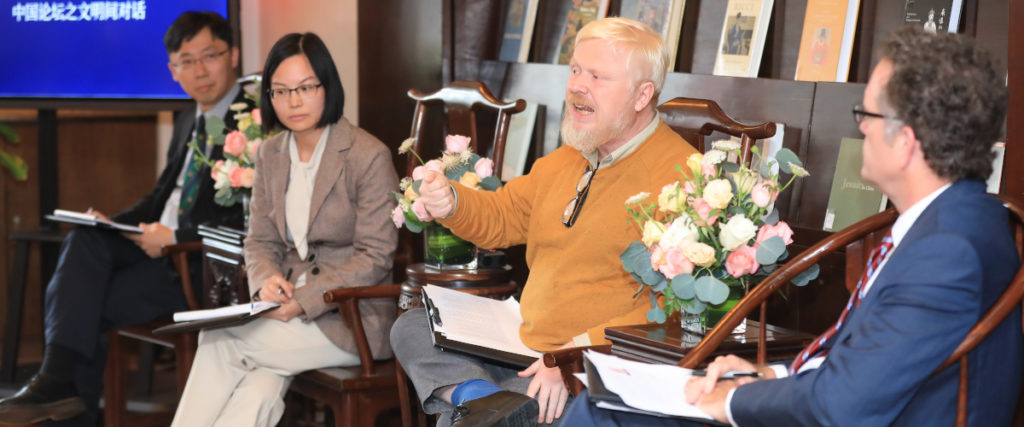
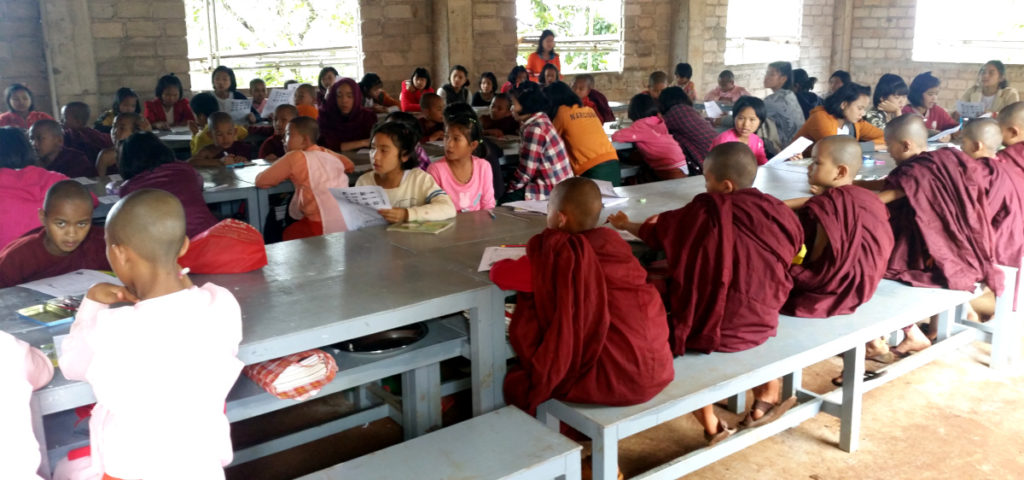

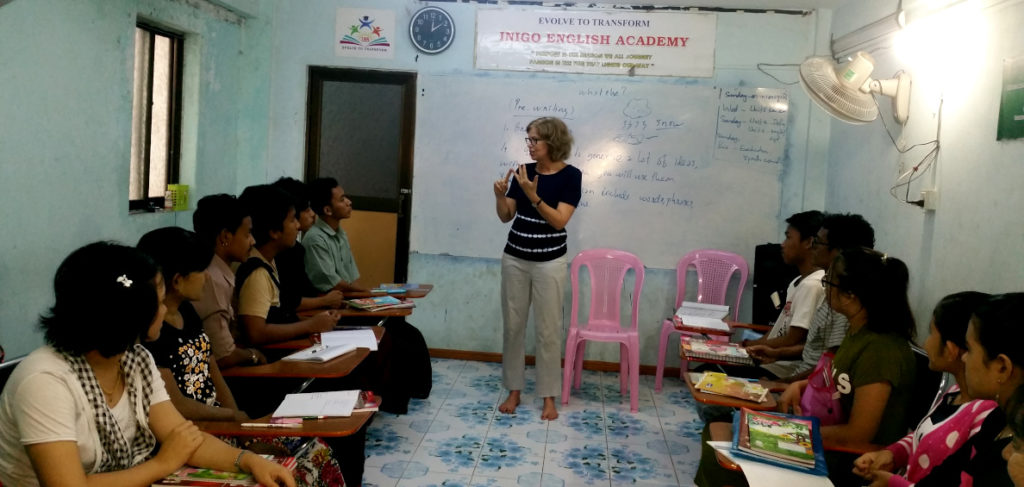
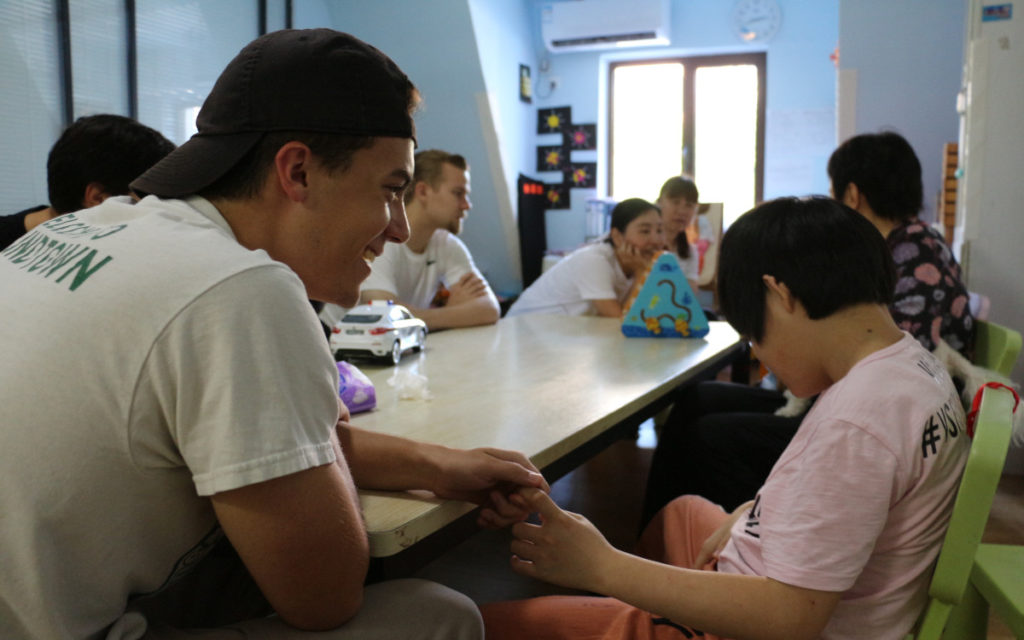
 Since TBC’s founding in 1998, students in the study abroad programme participate in service learning activities each semester in Beijing. As persons for others, they’ve volunteered with disadvantaged youth, worked as English tutors and helped renovate classrooms in the Beijing suburbs.
Since TBC’s founding in 1998, students in the study abroad programme participate in service learning activities each semester in Beijing. As persons for others, they’ve volunteered with disadvantaged youth, worked as English tutors and helped renovate classrooms in the Beijing suburbs.